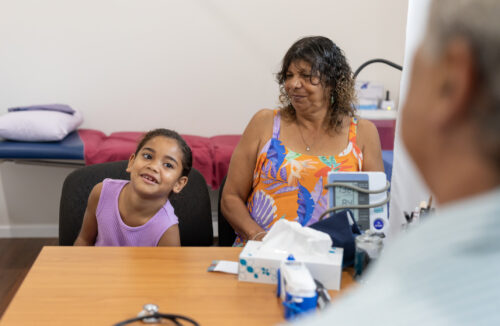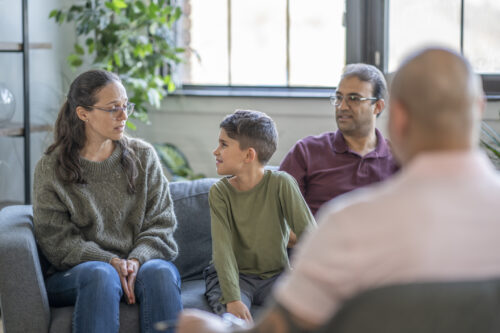Neurodivergent Treatment for Teens and Adults
At Charlie Health, we believe that neurodivergence should be affirmed and supported, not treated or resolved. Fill out the short form below, or give us a call, to get neurodivergent-affirming therapy today with Charlie Health.
More than 91% of clients see improvements in their most severe mental health symptoms.
How are conditions considered neurodivergent diagnosed?
Diagnosing neurodivergent conditions involves a comprehensive assessment by a qualified healthcare professional or a multidisciplinary team. They gather collateral information from caregivers and teachers as well as medical and developmental history using questionnaires and established diagnostic criteria. Feedback and discussion follow the diagnosis, with a focus on interventions and support. The process can be lengthy, requiring sensitivity and respect for the person’s needs.
How does Charlie Health take a specialized approach to treating neurodivergent people?
At Charlie Health, we believe that neurodivergence should be affirmed and supported, not treated or resolved. That’s why we’re proud to offer a neurodivergent-affirming clinical curriculum to neurodivergent people who wish to attend treatment with others facing similar challenges.
By embracing neurodiversity, we foster an environment that values the unique perspectives and strengths of neurodivergent people.
Recognizing and celebrating neurodivergence helps us move away from pathologizing differences and towards a more inclusive, equitable, and compassionate therapeutic environment where everyone has the opportunity to thrive.

We proudly partner with many major insurance providers, including commercial, Medicaid, and TRICARE
What are the best therapy options for neurodivergence treatment?
Neurodivergent-affirming DBT skills
Neurodivergent-affirming dialectical behavior therapy (DBT) integrates principles of neurodiversity into DBT. It respects the unique traits and sensitivities of neurodivergent people, providing tailored methods for mindfulness, managing emotions, relating to others, and handling distress—the core components of DBT. These skills prioritize flexibility, teamwork, and validation to create a more inclusive and effective therapeutic experience for neurodivergent people.
Positive reinforcement-based CBT
Positive reinforcement-based cognitive-behavioral therapy (CBT) uses rewards to encourage positive changes in thoughts and behaviors. It’s especially helpful for people with neurodivergent conditions, aiding them in developing adaptive skills and managing challenges. It covers skill development, behavior change, emotional control, social skills, anxiety, self-esteem, motivation, and daily life skills.
Art and music therapy
Art and music therapy can be highly beneficial for neurodivergent people, offering unique ways to express, communicate, and manage emotions. These therapies aid in non-verbal communication, emotional control, sensory integration, focus, social interaction, anxiety reduction, and positive expression. When facilitated by specialists who understand neurodivergent needs, art and music therapy can create a safe and supportive space for creative self-expression and growth.
How it works
Reach out
Call our Admissions Team 24/7 or fill out our quick online form to verify your insurance coverage and get started
Get matched
We’ll conduct a thorough assessment to create your personalized virtual treatment plan
Start healing
Meet your peers in groups and your primary therapist in as little as 24 hours
Mental health conditions associated with neurodivergence
FAQs about neurodivergence
See All FAQsWhat is neurodivergence?
Neurodivergence is an umbrella concept encompassing people whose neurological functioning diverges from what is considered neurotypical, including those with conditions such as autism, attention-deficit/hyperactivity disorder (ADHD), dyslexia, and more. Neurodivergence can manifest in various ways, including differences in sensory perception, social interaction, communication, and cognitive processing. Importantly, the neurodiversity movement promotes the idea that these differences are not weaknesses; they add to the richness of human diversity. Embracing neurodiversity means creating an inclusive society that respects and supports these differences, letting neurodivergent people participate fully without discrimination.
Why are group connections important?
Neurodivergent people often experience loneliness and isolation as they struggle to fit into environments designed mostly by and for neurotypical people. Connecting to other neurodivergent people with shared identities and lived experiences in group sessions makes healing more effective. Emerging research shows that autistic peer-to-peer information transfer, for instance, is highly effective and that autistic people may indeed be better understood by each other than by their neurotypical counterparts. Group connections give neurodiverse clients that chance to feel a sense of belonging and understanding.
How can virtual care be especially helpful?
Access to quality support for many conditions under the neurodivergent umbrella is often limited to early and middle childhood. Support for adolescents and young adults can be limited in urban areas and nonexistent in rural areas. Virtual care changes this, offering a treatment option for older clients. Also, virtual care offers neurodivergent clients the chance to access care from sensory safe spaces in the comfort of their homes, which removes barriers some neurodivergent clients face in traditional brick-and-mortar treatment settings



















